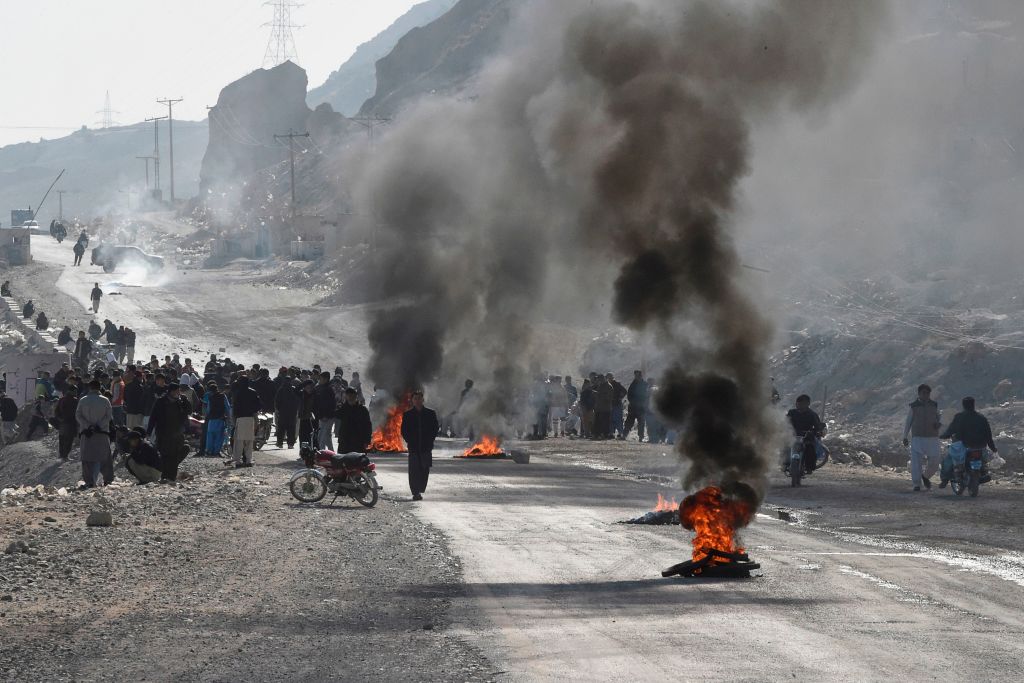KN Pandita
“Baloch insurgency is on resurgence, and its widened targets include CPEC projects and Chinese nationals in Pakistan. The Pakistani security establishment is under pressure from Beijing to respond decisively to the killing of three Chinese citizens on the premises of Karachi University on 26 April.
“And yet, neither a quick military operation, as part of the strategy of annihilation nor an attention diversion tactic in the form of punishment solution to the insurgency needs to be found,” wrote Bibhu Prasad Routray in Maitreyan Analysis of 5 May 2022.
Armed conflict between the Baloch nationalist freedom fighters and the Pakistan army has shown sharp escalation ever since the day the astute scholar wrote an excellently in-depth commentary on the socio-political scenario of the Baluch society.
The News of July 12, 2023, quoting Azim Kakar, the administrative chief of Zhob, reported that four soldiers and at least three gunmen were killed when a group of suspected militants attacked a Pakistani Army outpost in the restive Balochistan region of Pakistan, while a woman bystander caught in the crossfire has also died.
A group of up to 20 gunmen dressed in Pakistani Army uniform launched an attack overnight on the military base in the northern Zhob district of Balochistan.
A new terrorist group Tehreek-e Jihad Pakistan (TJP), claimed responsibility for the terrorist attack in Zhob. The fighters stated that they would continue to attack government forces until Sharia law was established in the country.
On March 6, a suicide bomber attacked a car with law enforcement officers in Balochistan province. Nine police officers were killed, and 11 more were injured. Balochistan Insurgency/Representational Image
Balochistan Insurgency/Representational Image
 Balochistan Insurgency/Representational Image
Balochistan Insurgency/Representational ImageThe TJP first announced itself on February 23, 2023. At that time, they shot in the province of Balochistan, killing one serviceman and injuring another, according to reports.
In May, six militants and seven soldiers were killed in another attack by TJP on a military compound in Muslim Bagh, another district of Balochistan.
Balochistan, Pakistan’s largest but sparsely populated province bordering Afghanistan and Iran, is regularly targeted by Islamist militants, sectarian groups, and nationalist separatists. The province is rich in natural resources like copper, gold, and gas and has been marred by instability and violence.
Tehreek-e Jihad Pakistan
The most prominent militant group in the region, the outlawed Balochistan Liberation Army (BLA), routinely takes credit for attacks on Pakistan security forces. But the emergence of a new fighting group named Tehreek-e Jihad Pakistan (TJP) adds one more dimension to the Baloch struggle for independence.
In the recent past (2003-2007), the Frontier Corps, along with regular Pakistan Army units, received a lot of modern US arms for combating a resurgent Afghan Taliban, which has instead shamelessly been diverted for curbing the Baloch insurgency, reported moneycontrol.com
Baloch Discontent
Baloch insurgency has simmered in the province for a long. Initially, under the tutelage of Baloch Sardars, educated middle-class leaders like Allah Nazar expressed their deep resentment against a discriminatory attitude towards the Baloch.
Though divided, Baloch militants had avoided making a common cause with the Tehrik-i-Taliban Pakistan (TTP), who are considered untrustworthy allies as predominantly Pashtun outfits.
However, in February 2023, the TTP, under Wali Mehsud’s leadership, announced a new organizational structure comprising two zones — north and south. Nine administrative and operational units (wilayahs or shadow provinces) were established, of which seven cover Khyber Pakhtunkhwa (KP), while one was explicitly earmarked for the Pashtun-dominated Zhob division of Balochistan.
In June, another unit was established in Balochistan for the areas of Qalat and Makran, marking the TTP’s first organized territorial foray in a non-Pashtun majority area. Previously, they would attack the police force, but now they have also started targeting Frontier Corps and military personnel. Balochistan Insurgency/Representational Image
Balochistan Insurgency/Representational Image
 Balochistan Insurgency/Representational Image
Balochistan Insurgency/Representational ImageIn recent months, the TTP has been trying to make inroads among the Baloch, releasing propaganda videos in Balochi. In some of these videos, in an obvious appeal to Baloch sensibilities, the TTP talks about missing persons, mostly Baloch from disturbed areas of southern Balochistan.
TTP Threat To CPEC
Significantly, Zhob falls on the Quetta-Dera Ismail Khan highway, part of the western route of the China-Pakistan Economic Corridor (CPEC), a flagship project of Beijing yet to be fully developed.
The security of CPEC is the responsibility of the Pakistan military, which has set up two special security infantry divisions – the 34 Light Infantry Division (Headquarters at Chilas for Gilgit-Baltistan and Khyber Pakhtunkhwa) and the 44 Infantry Division (stationed at Gwadar for Balochistan), to protect its assets, personnel (Chinese engineers) and newly created infrastructure.
Therefore, any successful attacks by TTP on Chinese assets or personnel would cause great embarrassment to the Pakistan Army.
Visiting the injured of Zhob garrison in Quetta Military Hospital on July 13, Army Chief Gen Asim Munir expressed concern over the freedom of action that TTP was enjoying in their safe havens in Afghanistan. Defense Minister Khwaja Asif also rebuked the Afghan Taliban on July 15 for “neglecting its duties” and violating their “commitments made in Doha.”
So far, there is no evidence of these warnings being taken seriously by the Kabul government to pressure the TTP to mend its ways. Pakistan had said that according to the Doha agreement, the Taliban have committed not to allow their soil to be used against a third country. The Taliban spokesman said that the Doha agreement was between the Taliban and the US and not between the Taliban and Pakistan.
Needless to list, numerous atrocities the Pakistan army has perpetrated on the Baloch over seven decades in the past. The Bloch leaders and various sources of the international community have entirely told that story.
Conclusion
The Balochistan issue cannot be resolved by addressing the socio-economic grievances of its people – that time has gone. Their grievances remain in place, but the political forces willing to negotiate them within the framework of the Pakistan Federation have been marginalized and forced to harden their position.
The Pakistani military establishment seems to have decided to eliminate the very idea of Baloch nationalism, even in its most innocuous forms.
The failure of the security forces to end the Baloch conflict by sword should suggest to Islamabad that Pakistan’s diversity will have to be managed politically, not repressed or suppressed by military means, failing which the newly emerged nexus is a potential threat to Pakistan’s territorial integrity.
A host of countries are ready to recognize Balochistan’s independence and offer substantial support for the perpetuation of the emerging state.
No comments:
Post a Comment